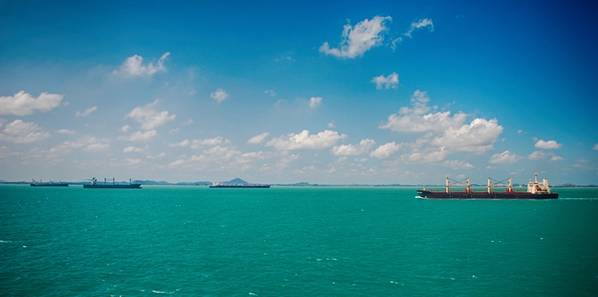
Port days and diverted voyages are having an unusually strong impact on market balances and will play a key role in the short term outlook.
Summer may be drawing to close in the northern hemisphere but for dry bulk shipowners, the positive tone could continue into early autumn as port delays and diversions provide continued upside, says Maritime Strategies International.
July was another positive month for the dry bulk sector, with average monthly spot rates rising to their highest level this year for all benchmark vessels, according to MSI’s latest HORIZON Monthly report.
In fact, the resurgent seaborne iron ore market that provided a boost to earnings in June showed signs of slowing in July with Australian exports declining from record June levels and Brazilian exports falling just over 5% mom. Stockpiles of iron ore at Chinese ports have recovered partially from long-term lows in early June, up by 8% in early August.
However, delays at ports (particularly those in China) are absorbing tonnage. Data from Refinitiv show that vessels are waiting 61% longer on average at key Chinese ports. Delays are particularly bad at the northern port of Rizhao where vessels waited for an average of 6.2 days last month, compared to 2.1 days in July 2019. An increase of four days for iron ore discharges in China corresponds to an additional 2% required tonnage capacity.
“Port delays are partly related to robust trade, iron ore in particular, partly due to poor weather and slower operations due to COVID-19,” says MSI Dry Bulk Analyst William Tooth. “COVID has also driven inefficiencies in vessel operation; several vessels bound for China have recently diverted to the Philippines to change crews, lengthening voyage times and reducing the available fleet.”
MSI expects iInefficiencies related to COVID-19 should revert closer to ‘normal’ levels as restrictions to the movement of people, goods and business operations are gradually lifted across the world and the impact of recent poor weather in China will also be temporary, causing disruptions to ease.
“With regards to the short-term fundamentals outlook, MSI is positive for Q3, with demand underpinned by robust iron ore trade in particular, more than offsetting weaker coal trade, however we expect a downwards correction from current strong earnings,” Tooth adds. “As we head into the fourth quarter, the downturn will be partly driven by the cumulative effects of strong supply growth this year, and an expectation that fleet efficiencies ease. However, if sustained for a longer period, these fleet inefficiencies would continue to represent upside risk to MSI’s Base Case.”



